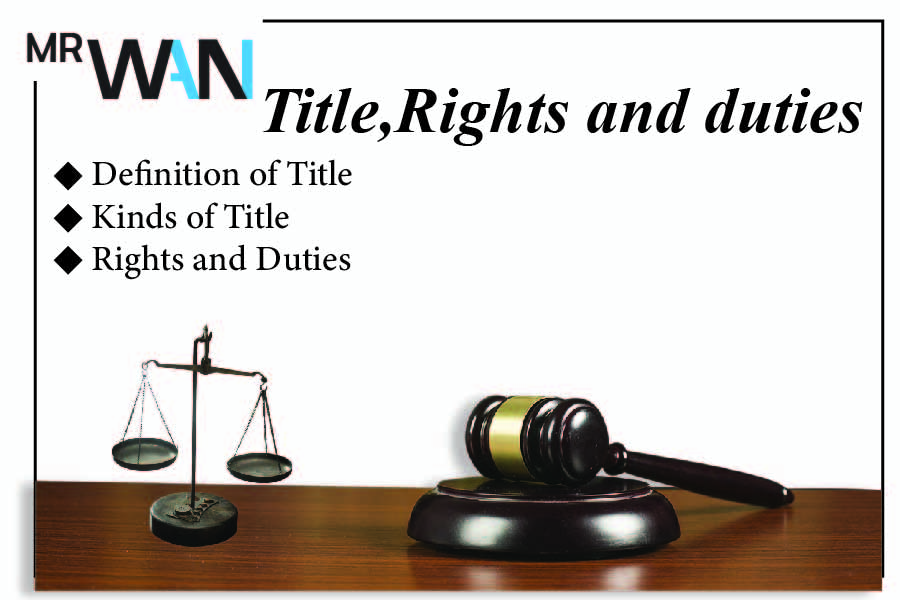Title
Title is a link between a person and an object to establish ownership of property. A title is the de facto antecedent of which the right is the de jure consequent. Right of possession or ownership comes in term of de facto first and later de jure. A title can represent ownership of a real asset such as a car or an intangible property or asset such as a trademark, patent, or copyright.
Kinds of Title
There are two kinds of title are as follow
Investitive fact
Investitive facts create rights. This right is created first time on the objects, which are ownerless. When I catch fish it is my original title and if I purchase it is fro else where then it is called derivative title. Derivative right is second right, which is created after gone away of original right.
Divestitive Facts
Are those, which loss or keep away of right termed as divestitive facts.
Alienative right
Right which is separated or transferable.
Extinctive right
Right which is kept away or destroyed.
subject matter of Title
In jurisprudence, the subject matter of “title” refers to the legal right to ownership or possession of something, often a property.
Rights and Duties
Rights are the fundamental to the study of jurisprudence and law. They are the pillars upon which legal systems and ethical principles are built. Here we explore the various types of rights and their significance
Natural rights
Natural rights are inherent, universal, and inalienable rights that people possess by virue of their humanity. They are not contingent on any legal or social constructs.
Legal Rights
Legal rights are rights recognized and protected by a specific legal system or government. They are contingent on the laws of a particular society.
Human Rights
Human rights are universal rights inherent to all individuals, irrespective of their nationality or legal system. They are protected by international agreements and conventions.
Duties
Legal duties
Legal duties are obligations that individuals or entities are legally required to fulfil as stipulated by a specific legal system. They are enforceable and can lead consequences if not obeyed.
Legal duties are typically formulated and enforced by the state or governing authority.
Moral Duties:
Moral duties, in contrast to legal duties, are obligations based on ethical or moral principles. There duties may not be legally enforceable but are believed to be intrinsically right or good

